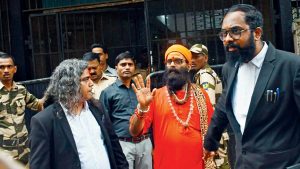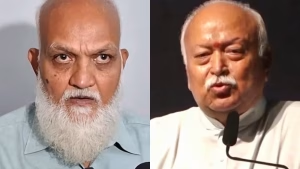The recent court verdicts in two major terror cases have triggered a significant Maharashtra political response that reveals concerning patterns in how political leaders address judicial outcomes. While state leadership has been vocal about one case, their silence on another equally important matter raises questions about consistency and integrity in political discourse.
Chief Minister Fadnavis and his deputy have made emphatic statements following the Malegaon case verdict, with Fadnavis declaring that the court decision proved terror was never associated with saffron ideology. This Maharashtra political response came swiftly after the NIA special court acquitted all seven accused in the 2008 Malegaon blast case, prompting immediate political commentary from the state’s top leadership.
 The timing and nature of this Maharashtra political response reflect broader political strategies in addressing judicial outcomes. Senior leaders demanded apologies from opposition parties for using terms like “Hindu terrorism” and claimed that narratives of “saffron terrorism” had been exposed. This coordinated political messaging demonstrates how court verdicts are being leveraged for broader political narratives.
The timing and nature of this Maharashtra political response reflect broader political strategies in addressing judicial outcomes. Senior leaders demanded apologies from opposition parties for using terms like “Hindu terrorism” and claimed that narratives of “saffron terrorism” had been exposed. This coordinated political messaging demonstrates how court verdicts are being leveraged for broader political narratives.
However, the Maharashtra political response becomes problematic when examining the leadership’s approach to similar cases with different outcomes. The recent Bombay High Court verdict acquitting all twelve accused in the 7/11 Mumbai train blasts case, including five who were previously on death row, has received markedly different treatment from the same political leaders.
This disparity in the Maharashtra political response highlights a concerning pattern of selective commentary. While one case received immediate political validation and public statements, the other significant acquittal has been met with relative silence from the same leadership that was quick to comment on the Malegaon verdict. The Mumbai train blasts case, which involved 187 fatalities, saw all the accused acquitted due to a lack of substantiating evidence and disparities in the investigation.
The differential Maharashtra political response becomes more striking when considering the severity and impact of both cases. The 7/11 case involved death penalties and life sentences that were completely overturned due to prosecution failures in establishing guilt, yet this significant judicial development has not prompted the same level of political commentary or analysis.


This pattern in the Maharashtra political response also reflects broader challenges in contemporary political discourse, where judicial outcomes are often viewed through partisan lenses rather than as independent legal determinations. The tendency to celebrate verdicts that align with political narratives while ignoring those that might be inconvenient or challenging demonstrates a problematic approach to judicial independence and the rule of law.
The differential Maharashtra political response has been reflected in media coverage patterns as well. While extensive coverage was provided to statements about the Malegaon case, the political silence on the Mumbai case has resulted in less prominent discussion of the leadership’s selective commentary. This creates an information asymmetry that may influence public understanding of both cases and their broader implications.
The Maharashtra political response also reveals tensions between different levels of government and judicial authorities. The Supreme Court’s decision to stay the Bombay High Court judgment in the Mumbai case, following the state government’s appeal citing concerns over precedent, demonstrates the complexity of these legal and political intersections.
Also Read: Maharashtra political response
For reference, also read: Malegaon Blast Acquittals
The inconsistent Maharashtra political response highlights broader challenges in how terror cases are discussed and politicised. Previous narratives about “Hindu terror” and “saffron terror” have been central to political debates, with different parties taking opposing positions on these characterisations. However, when political leaders selectively engage with court verdicts, it undermines the credibility of their positions on these sensitive matters.
This selective Maharashtra political response also impacts public trust in both political leadership and judicial processes. When citizens observe that their leaders only comment on cases that support their preferred narratives while ignoring equally significant judicial developments, it can create cynicism about the motivations behind political statements on legal matters.
 Moving forward, the Maharashtra political response to judicial matters requires greater consistency and principled engagement. Political leaders who claim to support justice and legal processes should engage with all significant court verdicts in a manner that reflects these stated values, rather than selectively highlighting only those that serve immediate political purposes.
Moving forward, the Maharashtra political response to judicial matters requires greater consistency and principled engagement. Political leaders who claim to support justice and legal processes should engage with all significant court verdicts in a manner that reflects these stated values, rather than selectively highlighting only those that serve immediate political purposes.
The double standard evident in the current Maharashtra political response undermines the credibility of political discourse around terror cases and judicial matters. Citizens deserve leaders who approach all court verdicts with the same level of respect for judicial processes and commitment to factual analysis, regardless of whether the outcomes align with their political preferences.
This pattern of selective commentary in the Maharashtra political response also highlights the need for more rigorous media scrutiny of political statements and greater public awareness of how political leaders engage with judicial outcomes. Only through consistent application of democratic principles and respect for judicial independence can political discourse around such sensitive matters maintain its integrity and serve the public interest effectively.

